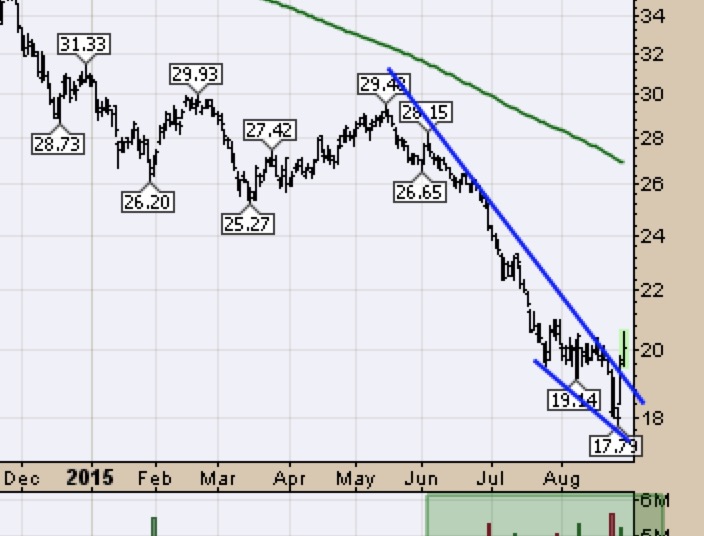THE ACTIVE-PASSIVE CONTRADICTION
by Peter Kraus, AllianceBernstein
Asset allocators continue to systematically reduce their exposure to active equity managers in favor of passive strategies. On the surface, this move seems sensible: after all, active management underperformed passive on an after-fee basis in the years following the global financial crisis.
But asset allocation trends also show a contradiction. While participating in the consensus move to passive, institutions, advisors and individuals are increasing allocations to private equity and hedge funds—despite their higher fees and illiquidity. These investors base this decision on the belief that these funds will continue their strong records of generating alpha.
This decision seems perplexing. Private equity funds and most hedge funds are, at heart, active equity investors. Yet, we believe that asset allocators are onto something. They’ve concluded, maybe intuitively, that it’s possible to generate alpha in today’s markets, and that private equity and hedge funds have done it while most long-only equity managers haven’t. We agree, but we also think certain long-only strategies deserve another look.
PASSIVE INFLUX CREATES ACTIVE OPPORTUNITIES
We believe alpha generation is possible. And, in our view, today’s alpha opportunity has been created—in something of a paradox— by the tidal shift to passive investing.
Passive management is based on the theory that active investors make markets so efficient that it’s impossible to outperform or generate alpha. So, it makes sense to simply take a “free ride” on the efficient market and pay the lowest fees possible. But that approach creates a perverse reality: the broad shift to passive is reducing the percent of market trading volume from active managers, and is actually making markets less efficient. This change creates alpha opportunities for the type of active management often exemplified by hedge funds and private equity funds.
The most successful of these funds generally have high- conviction, concentrated portfolios supported by in-depth fundamental research. And they control capacity, so AUM growth doesn’t dilute their ability to take meaningful positions in their best ideas.
Unfortunately, too many long-only equity managers fail to follow the same path. They don’t restrict capacity and overdiversify their portfolios to limit tracking error versus the benchmark. They ignore the strong evidence that investors who limit their AUM tend to outperform those that don’t, and that excess diversification, or “diworsification,” in Peter Lynch’s words, waters down performance. Sir John Templeton put it this way, “If you want to have better performance than the crowd, you must do things differently from the crowd.”
A thoughtful analysis doesn’t conclude that long-only active management can’t work. Rather, it leads to the conclusion that most long-only managers ignore the crucial investment tenets; they fail to accept that too much AUM and too much diversification inexorably dilute a manager’s ability to add alpha.
IS THERE SOMETHING UNIQUE TO PRIVATE EQUITY AND HEDGE FUND ALPHA?
Are concentration and capacity management enough to give active long-only equity managers the opportunity to produce alpha?
Some observers argue that private equity and hedge funds generate most of their alpha because of unique characteristics that would be hard for long-only managers to replicate. These include high fees (that attract investment talent), leverage and illiquidity. Hedge funds also manage beta risk more actively by shorting, and private equity funds and some activist hedge funds likely have more influence over the direction of their portfolio companies.
However, if we consider these characteristics one at a time, we see that’s not necessarily the case, and that alpha-seeking investors should consider high-conviction and concentrated long- only equity managers.
Fees: As the argument goes, the high-fee world of private equity and hedge funds attracts all the talented equity investors. The reality is different.
Over the years, a number of high-profile hedge fund managers have realized that managing stable, long-term, long-only capital can be very attractive, despite lower headline fees. Even Warren Buffett closed his Buffett Partnership fund in 1969, attracted by the permanent capital available through an insurance company.
And today, many successful hedge fund managers are entering the world of “liquid alternatives”—products that charge much lower fees than traditional hedge funds, but that can attract significant investment flows. Finally, private equity and hedge funds represent only a small single-digit percentage of the world’s financial assets. Such a small group of funds certainly hasn’t cornered the market on investment talent.
Perceptions aside, there are many great long-only investors, and it’s likely that the high fees of hedge funds eat away at alpha, rather than enhancing it.
Leverage: Investment pools that use leverage can produce higher returns, and higher returns might make investors more receptive to higher fees. But these higher returns are masquerading as alpha. Leverage doesn’t produce alpha, it only magnifies the impact of alpha—positive or negative. And it magnifies risk. Leverage doesn’t explain the alpha produced by hedge funds, and it makes little sense to allocate to leveraged pools of capital simply because their returns are marketed as alpha.
Illiquidity: The illiquidity premiums generated by hedge funds often come from investments that are also available to long-only managers—if they’re willing to accept tracking error. These investments include small-cap stocks, post-reorganization equities and emerging-market equities. And bear in mind that private equity funds often buy public companies at a premium, not a discount.
Alternative investment funds that limit investors’ liquidity may be able to improve their long-term returns by avoiding forced selling when clients demand liquidity in down markets. This helps during market panics, but the thought of being gated in a crisis doesn’t explain investors’ attraction to hedge funds and private equity funds. If it did, investors could easily offer similar terms to long- only managers. The bottom line is that the illiquidity premiums investors look for in private equity and hedge funds are largely available to truly active, long-only managers.
Shorting: Hedge fund managers are generally more aggressive in managing beta than long-only managers and have more tools to do it, including the ability to take short positions.
Is this a major driver of alpha? It certainly isn’t in private equity funds, which generally don’t manage beta by hedging their positions. And while hedge funds have benefited from managing beta over time by outperforming in down markets, very few have generated anywhere near as much alpha on the short side as they have on the long side. It’s hard to deliver consistent alpha on the short side—that’s why so few short-only hedge funds have survived over time.
Active Engagement: Private equity funds and activist hedge funds engage with corporate management, which likely creates alpha over time. But only a small percentage of hedge funds truly engage with management. And even though private equity funds are involved in the board process, they generally have limited responsibility for day-to-day operations. While some private equity and hedge funds create alpha through active engagement, most of the alpha comes from investment decisions, not their management skills.
HIGH-CONVICTION ACTIVE MANAGEMENT CAN DELIVER
If the alpha private equity and hedge funds generate doesn’t come mainly from those unique characteristics, then a substantial part must come from the characteristics they share with high- conviction, long-only managers.
In the hands of talented managers, high-conviction and concentrated investing—based on strong fundamental research— and AUM limits are a powerful alpha-generating combination that can outperform passive investing. A host of peer-reviewed research in academia supports this intuitive conclusion, whether the conviction is possessed by traditional long-only equity managers or by private equity or hedge fund managers.
We believe that high-conviction equity managers who appropriately limit their AUM are a potential source of alpha. Investors shouldn’t ignore this just because long-only managers— generally—have failed to perform. Instead, asset allocators should create equity portfolios with either a mix of passive, factor and high-conviction active exposures or a well thought out combination of high-conviction active managers. This isn’t easy to design properly, but it’s far preferable to concluding that the best choice is to earn benchmark returns minus the fees paid for passive management and advice.
THE BETA BOOM IS LIKELY OVER
Unfortunately, five years of 17% annualized index returns for US equities have conditioned many investors to believe that cheap beta is the best long-term investment opportunity and that searching for alpha is a waste of time. High market returns lure investment dollars to passive strategies, and the exceptional equity returns in the years after the 2008 crisis have produced a strong breeding ground for passive flows. Alpha doesn’t seem to scale, expand or contract along with the level of beta, so whatever alpha was available during the market’s run was a smaller percentage of total returns than beta has been.
But investors looking to put more money into passive should bear in mind the inevitability of economic and market cycles—after years of double-digit returns, the equity market can’t trend back toward its longtime average return of around 8% without much lower beta returns—or even losses—in the period ahead. So, just when passive seems like the best approach, beta risks have increased and alpha opportunities have improved. Shifting from active into passive at this point in the cycle may be akin to selling cheap and buying expensive. In other words, deciding to shift from active to passive eliminates the alpha opportunity just when it’s becoming more attractive.
Critics of active management are right to say that active equity managers with broadly diversified portfolios and no AUM constraints struggle to outperform. But high-conviction active managers who control their AUM—whether they’re long-only equity, hedge fund or private equity managers—produce alpha net of fees. Investors should have appropriate exposure to all these pools of capital. Investors who think about abandoning active at this point in the cycle could find disappointment with lower beta returns.

Copyright © AllianceBernstein
DISCLAIMER
Investment Products Offered - ● Are Not FDIC Insured ● May Lose Value ● Are Not Bank Guarantee
Note to All Readers:
The information contained here reflects the views of AllianceBernstein L.P. or its affiliates and sources it believes are reliable as of the date of this publication. AllianceBernstein L.P. makes no representations or warranties concerning the accuracy of any data.
There is no guarantee that any projection, forecast or opinion in this material will be realized. Past performance does not guarantee future results. T he views expressed here may change at any time after the date of this publication. This document is for informational purposes only and does not constitute investment advice. AllianceBernstein L.P. does not provide tax, legal or accounting advice. It does not take an investor’s personal investment objectives or financial situation into account; investors should discuss their individual circumstances with appropriate professionals before making any decisions. This information should no t be construed as sales or marketing material or an offer or solicitation for the purchase or sale of any financial instrument, product or service sponsored by AllianceBernstein or its affiliates.
For financial representative, institutional and private client use only. Not for inspection by, distribution or quotation to, the general public.
AllianceBernstein Investments, Inc. (ABI) is the distributor of the AB family of mutual funds. ABI is a member of FINRA and i s an affiliate of AllianceBernstein L.P., the manager of the funds.
The [A/B] logo is a service mark of AllianceBernstein and AllianceBernstein® is a registered trademark used by permission of the owner, AllianceBernstein L.P.
©2015 AllianceBernstein L.P. www.abglobal.com













